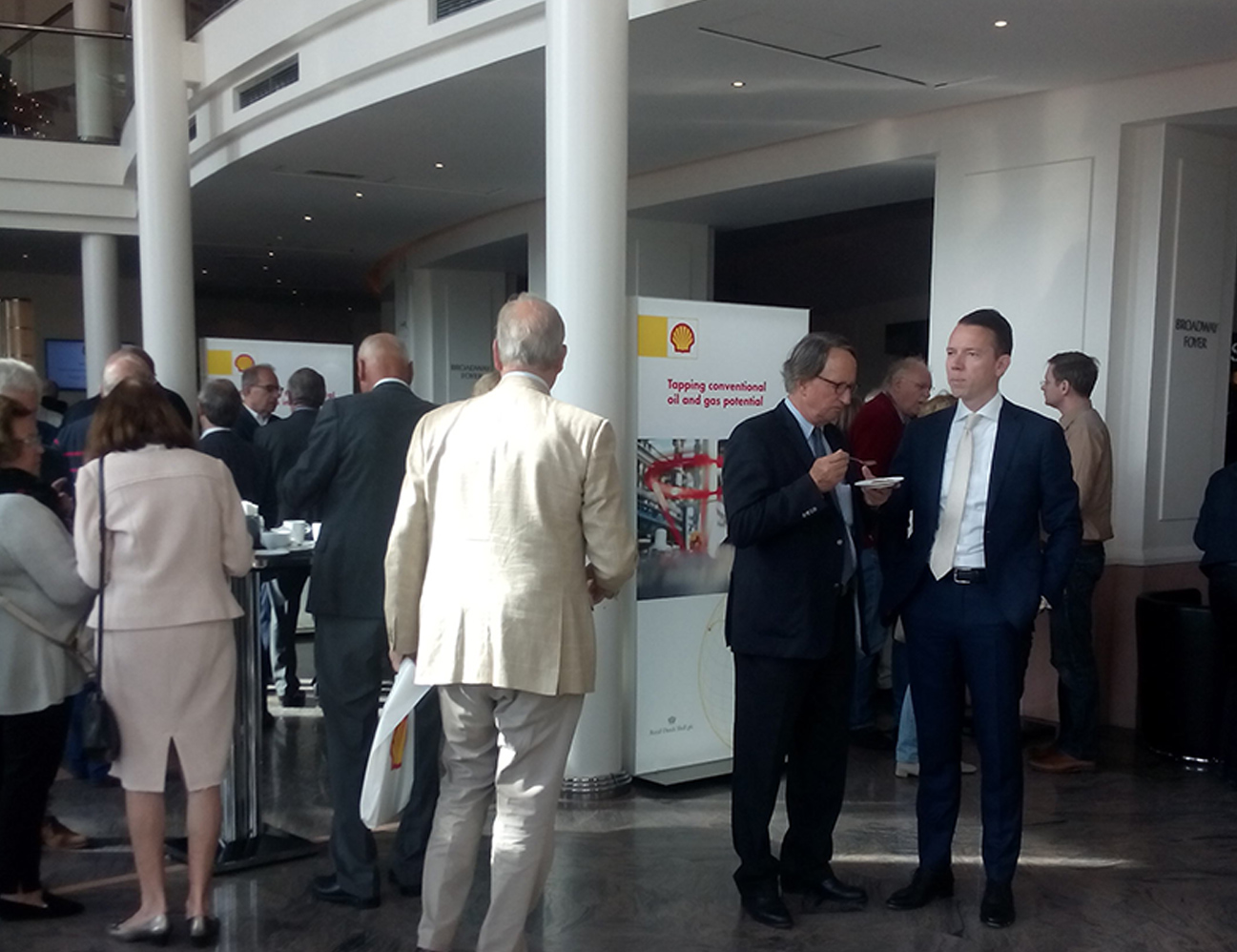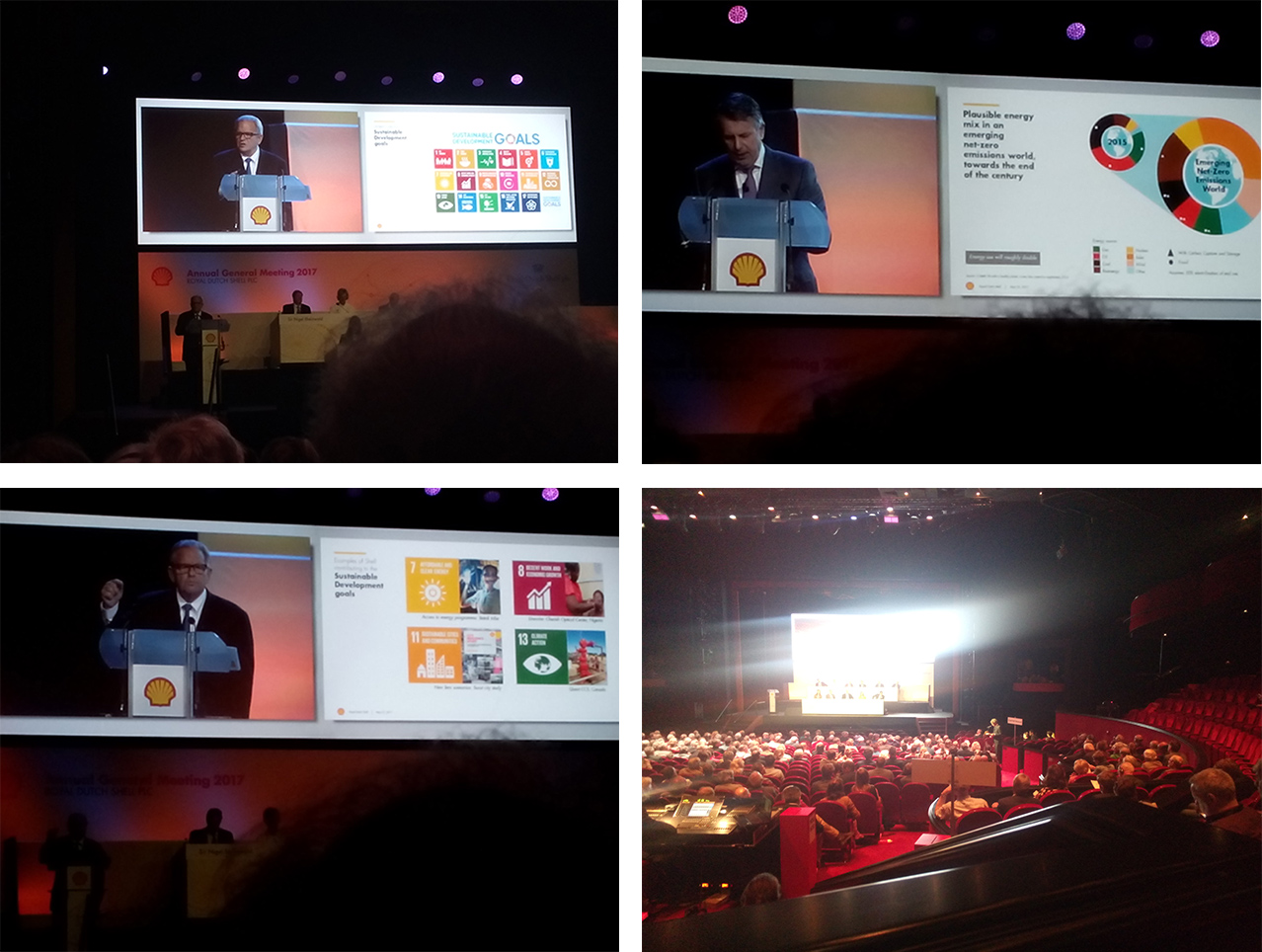For me this was the first time I identified myself as ‘a proxy’. I identified as a proxy for The Hague Fossil Free and did so at the Annual General Meeting (AGM) of Royal Dutch Shell, before I posed my question to the board of directors. I explained that there’s no ‘climate advantage’ to gas over coal because of methane leakage. Few people know that just a small amount of methane leakage will make gas just as bad or worse than coal. Knowing this, Shell can’t claim it has aligned its business to the Paris Agreement.

I had never attended a shareholder meeting before. I had imagined a party among shareholders, shaking hands on dividends, but it also turned out to be a ‘proxy party’; a reunion for human rights, corruption and climate activists, firing critical questions at the board of directors. One shareholder grabbed the mic and exclaimed: ‘I thought I came to a shareholders meeting, but all morning, I have heard nothing but environmental talk.’
It was kind of strange, standing in front of the board of directors of Shell. Looking them in the eye, confronting them and their shareholders with the danger gas poses to our world. And getting an answer – although not the answer of course.
For a year my Fossil Free buddy Sven Jense and I were involved in research on methane leakage and country reports on these numbers. It resulted in an influential long read (in Dutch) that exposed that the reported methane reduction in the Netherlands was an overly optimistic estimate, claiming 20% more reduction than was actually measured. And this is not just in the Netherlands. In other countries measurements of methane leakage have also turned out to be way higher than the estimates (there’s a reason they’re called guesstimates) reported in the country emission reports.
In my statement to the board of directors of Shell I said: “Why not call gas what it is: methane.”
Methane is 86 to 106 times more potent as a greenhouse gas than CO2 on a timescale relevant to preventing climate change from running out of control. Only a small gas leakage (1 to 3%) is enough to evaporate the ‘so-called climate advantage’ over diesel and coal. But gas-leaks are more than 3%, and that makes gas just as bad as coal. Even worse.
I confronted the board with a Stanford review of 200 studies that found an average of 5.4% methane leakage. When the chairman answered that they did their utmost to control leakage, I mentioned another very recent Stanford study that concluded measures to control methane leakage are hardly effective.

Despite evidence to the contrary, gas is considered a solution to climate change. Not only by companies selling gas and LNG, like Shell and BP, but also by our governments. They consider fossil fuel companies as partners in the energy transitions. Not because fossil fuel companies are the ones that should close the tap, but because they’re the ones that switch to gas.
The oil and gas industry is deeply entwined in our main societal structures; in our government and our universities. As such, people are willing to believe Shell is – as they say themselves – a force for good. They are willing to believe that gas – natural gas, it sounds so pure – is a solution. We also see it in the city of The Hague, the headquarters of Shell. Shell is a well respected employer of many inhabitants of the city. At the same time, the city council wants an energy transition along the 1.5 degree pathway. The best way to make these opposites both work is to believe Shell is saying the right thing about gas. And to ignore the evidence claiming otherwise.
Beforehand, I doubted whether I would go to the AGM and pose a question. I thought: “What’s the use? They won’t listen anyway. It’s a circus, and by participating I help keep the show going.” Of course, it was a circus. A kind of ritual, in which the board (some did not get to speak, others awoke from a deep coma when asked a question) encouraged shareholders, consumers and governmental stakeholders to stick their heads even deeper in the sand. (May I mention the parody video on the AGM we made with The Hague Fossil Free?)
But I was glad I spoke out. And I stood up. Claiming gas – excuse me, methane – is clean and a solution to climate change, is the main license to operate, for companies like Shell and BP. It also provides an excuse for pension funds, governments and museums to keep partnering up with companies like Shell. And that’s exactly the reason why we, Fossil Free campaigners, should start calling gas what it is: methane.
Femke Sleegers, The Hague Fossil Free
